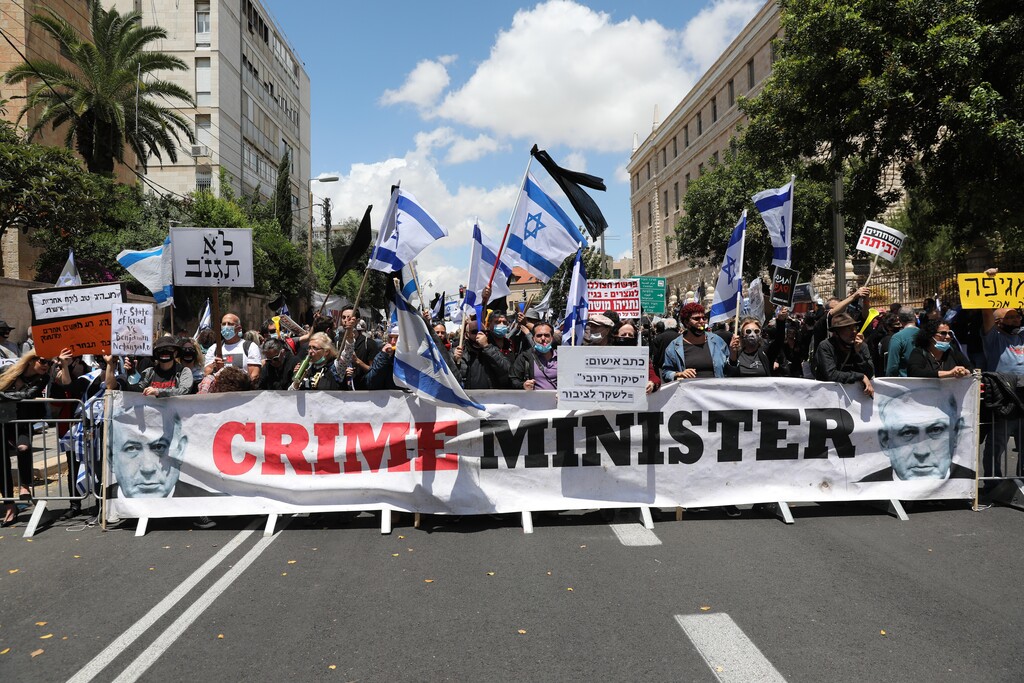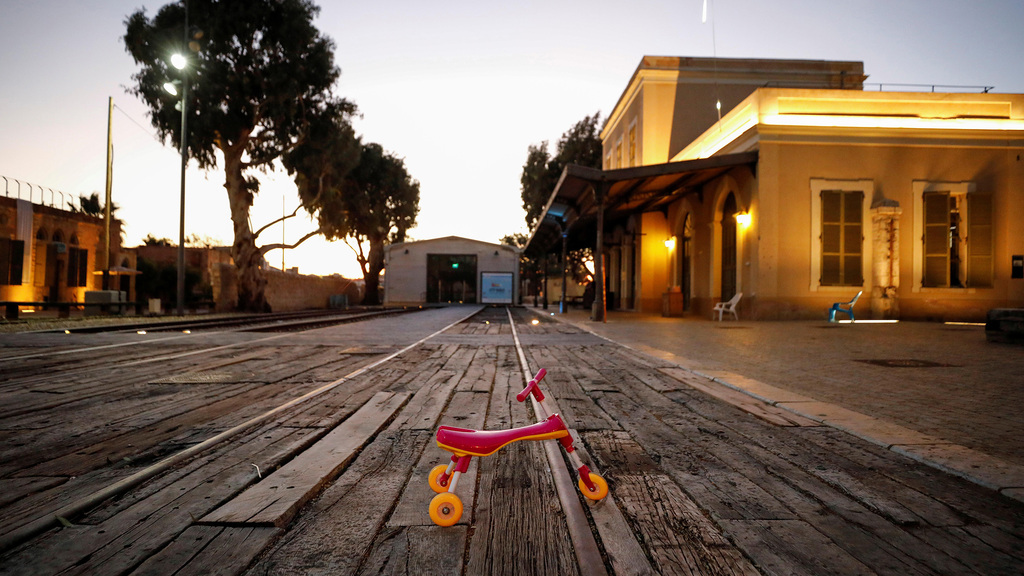Getting your Trinity Audio player ready...
I am often asked why I yearn for Prime Minister Netanyahu's removal from power.
His departure from the scene will likely seat a more extreme, right-wing politician with far less experience, who will surely do a worse job at leading the country.
5 View gallery


Israelis protest against Benjamin Netanyahu outside the prime minister's residence in Jerusalem
(Photo: EPA)
Bribery, fraud and breach of trust would be the easy answer. It is the answer heard from demonstrators every week in the protests outside the prime minister's official residence in Jerusalem.
But it is not a good enough response; Netanyahu is innocent proven guilty in a court of law.
The prime minister's corruption charges are but the tip of the iceberg and had the attorney general opted against bringing charges against him, I would still have said that he must not be allowed to continue in his job.
For Netanyahu has ignored the council of experts he himself appointed and imposed a national lockdown for the third time since the start of the pandemic.
Why, with the vaccination drive already in its second week, did he insist on such a drastic move as shutting down commerce and restricting movement for all but the education system?
Because of public opinion and public perception.
5 View gallery


Tel Aviv's popular HaTachana shopping and dining spot is empty as Israel begins its third coronavirus lockdown
(Photo: Reuters)
A lockdown will cost the economy somewhere in the region of NIS 10 billion and destroy even more small businesses, but it will also probably bring down the infection rate just in time for the March 2021 elections.
Netanyahu will then be able to claim - as he has done before - that his policies have been successful.
He kept the schools open, however, because the ultra-Orthodox community would have just ignored any directive and kept their educational institutions running anyway. This government would not have enforced their closure, certainly not with elections looming.
Netanyahu was also keenly aware that many parents want their kids in class and not at home.
5 View gallery


Schools remain open in violation of lockdown restrictions in Beitar Illit in October
(Photo: Shalev Shalom)
The lockdown was imposed in the service of Netanyahu's reelection campaign.
The pandemic has been politicized from the start and is an example of the prime minister's failed leadership.
After 11 years in power, the prime minister and his inner circle truly believe that the top job is theirs in perpetuity.
His army of supporters are prepared to go to any length to locate, neutralize and even eliminate any threat that they think may appear.
They collect intelligence, the kind that can be used against politicians.
Sometimes they target a member of Netanyahu's own Likud party who is seen as too independent.
Sometimes they target someone who may be considering a move into politics after a military career and would be a potential rival to Netanyahu.
Sometimes they target a journalist who may be investigating a story that could prove damaging to the leader and his campaign.
Any one of these must be regarded as an obstacle and therefore removed. The next step is entrapment.
An operative is sent to try to record any incriminating evidence. A business partner of Netanyahu's attorney Amit Haddad, who was himself recently unknowingly recorded by a documentary news team, spoke openly about this method when he suggested that the judges in the prime minister's corruption trial should be recorded in the hopes that this would lead to one or more of them being forced to recuse themselves from the case.
5 View gallery


Netanyahu aides Ofer Golan and Topaz Luk attempt to film a protest against him in Jerusalem in September
(Photo: Twitter)
All the while Netanyahu himself is shielded from complicity in such actions. He must have plausible deniability, his advisers insist.
Netanyahu has even claimed not to know about the actions of his wife and son, as his lawyers argued in court in Case 4000, when they threw the family under the bus in their efforts to clear the prime minister of any liability.
It was Sara and Yair Netanyahu, they claimed, who pressed communications mogul Shaul Elovitch to print favorable stories about the prime minister on the news website then owned by Bezeq. Not the man himself and certainly not in exchange for regulations that would translate to hundreds of millions in profits for Elovitch and his companies.
Perhaps Netanyahu is often kept in the dark, but it is in his name that alleged transgressions are made.
The prime minister's fight for political survival continues under a dark and heavy cloud.
His corruption trial colors every decision he makes on the government's handling of the coronavirus pandemic - and on almost everything else.
He does not shy away from blackmail, intimidation and violence. He attacks civil servants, politicians and the media - and some are frightened by him.
5 View gallery


Netanyahu supporters protest outside the home of Attorney General Avichai Mandelblit, calling on him to dismiss charges against the prime minister
(Photo: Moti Kimchi)
They are afraid to speak out, express their views and fight for what they believe is right, so much so that a mere whisper that the Netanyahu family views them in an unfavorable light is enough to silence them.
Netanyahu must be removed from power - and any candidate who can challenge the prime minister in March without using his dirty tricks is an attractive option.

